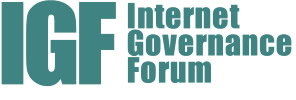Internet Governance Forum discusses surveillance, zero rating and corporate platforms
 2,500 delegates from governments, business, civil society, technical community and academia met in Joao Pessoa, Brazil, earlier this month for the 10th annual Internet Governance Forum (IGF). Since 2006, the IGF has served as the main global discussion space on trends in internet policy and as an opportunity to develop policy recommendations. Key themes this year included surveillance and data collection. Joseph Cannataci, UN Special Rapporteur on privacy, called the recently unveiled UK draft Investigatory Powers Bill “worse than scary” and criticized an “orchestrated media campaign to distort the debate” about the bill and surveillance.
2,500 delegates from governments, business, civil society, technical community and academia met in Joao Pessoa, Brazil, earlier this month for the 10th annual Internet Governance Forum (IGF). Since 2006, the IGF has served as the main global discussion space on trends in internet policy and as an opportunity to develop policy recommendations. Key themes this year included surveillance and data collection. Joseph Cannataci, UN Special Rapporteur on privacy, called the recently unveiled UK draft Investigatory Powers Bill “worse than scary” and criticized an “orchestrated media campaign to distort the debate” about the bill and surveillance.
Instead, he and many others recognized the importance of anonymity and encryption as a precondition for free expression. While the British government has repeatedly announced its intention to restrict encryption in order to reduce ‘safe spaces for terrorists and criminals‘, several sessions at the forum highlighted the importance of anonymity and encryption for business, security, and human rights. David Kaye, UN Special Rapporteur on the promotion and protection of the right to freedom of expression, who just published a widely regarded report on encryption noted that ‘anonymity is crucial for the right to maintain an opinion’. Google representative Ted Hardie acknowledged the need to offer the possibility for anonymous uses of its services and explained new and upcoming encryption mechanisms implemented by Google.
As privacy and surveillance have been prominent features of the IGF agenda in recent years, so has been the discussion on net neutrality. The principle of treating all data packages equally has been challenged, particularly, by the telecoms industry and internet service providers that would like to charge content providers and other internet companies for the extra-fast delivery of their services. A recent controversial ruling at the European Union had, in principle, confirmed net neutrality but allowed broad exceptions that telecom providers quickly started to exploit.
Zero rating has emerged as a particular concern in this context and became a key debate at this year’s IGF. Organisations such as Facebook’s Internet.org offer, for example through its ‘Free Basics’ service, cheap or free access to a small group of select online services. Typically these include Facebook but not its rivals, and a few partner services. While some participants at IGF argued that this allows previously disconnected regions in the Global South to go online for the first time and overcome the digital divide, others criticized it as a shrewd move by Facebook to expand its business around the globe and shut out competitors. By locking users into a walled garden of limited online services, it may create new divides and establish a ‘second-class internet’ for the Global South. The model did not just receive strong objections from meeting participants but was also the target of a protest rally inside the convention centre.
Zero rating also highlights the increasingly central role of the private sector in both delivering and shaping key public policy goals. Whereas the World Summit on the Information Society (WSIS) which preceded the IGF in 2003 and 2005 had discussed bridging the digital divide in the context of international politics, the controversies around Free Basics have focused on a company. They have related closely to broader debates at the IGF regarding the role of internet companies in allowing and restricting content through their terms of service. New projects such as ‘Ranking Digital Rights‘ have decided to focus on companies rather than governments in their efforts of protecting human rights online. The trend that emerges from this is a privatisation of policy, as well as a privatisation of human rights protection.
The role of internet companies has been particularly prominent in the surveillance debate. Commercial social media platforms are based on a business model of data collection and analysis, and they have played a central role in many of the surveillance programmes revealed by whistleblower Edward Snowden. They have also been the target of pressure from state authorities to hand over user data and comply with governmental data collection requests. As such, both zero rating and surveillance demonstrate the underlying trend of this year’s IGF: The increasingly prominent role of corporate platforms and intermediaries.
